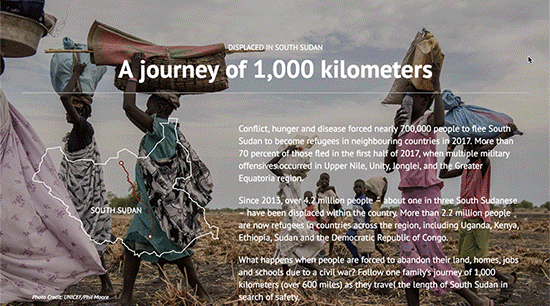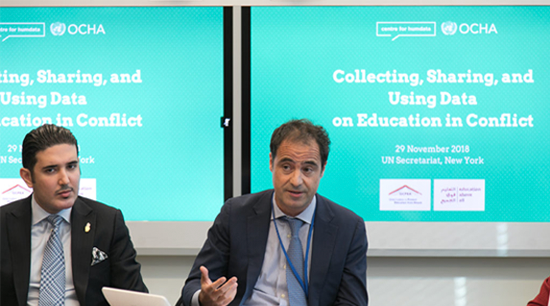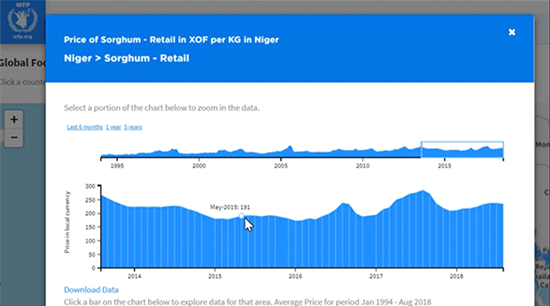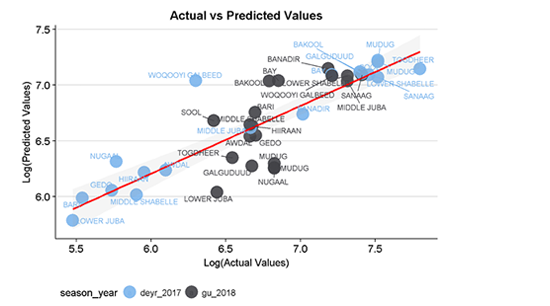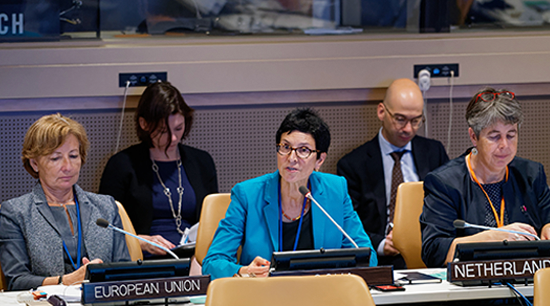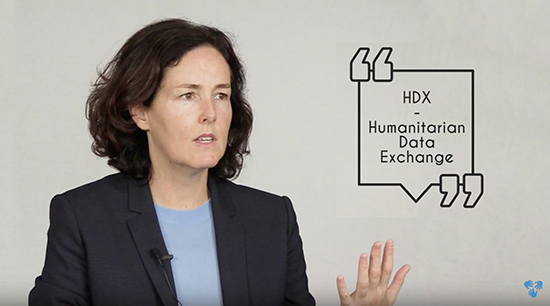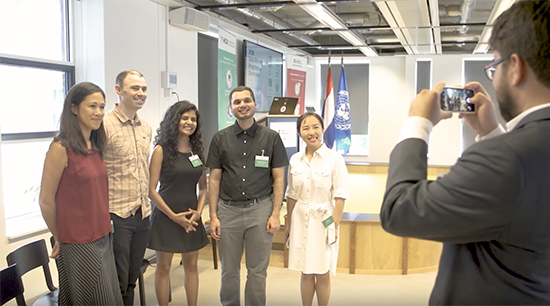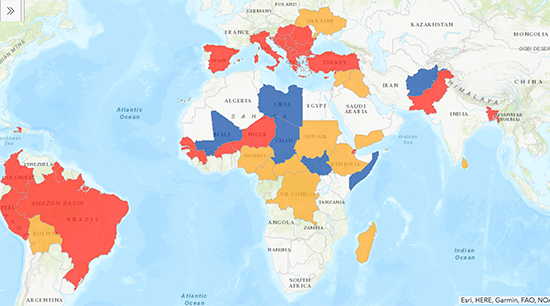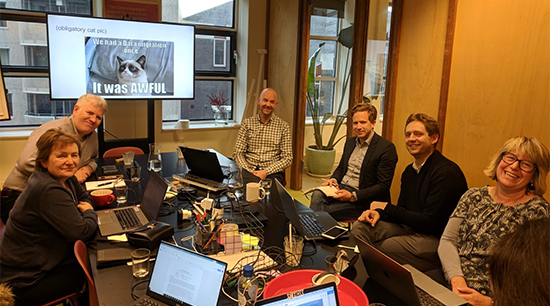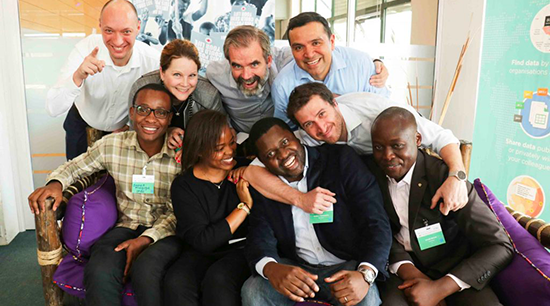Share
Throughout 2018, the Centre worked to increase the use and impact of data in humanitarian response. Below is a look at our top highlights from collaborating with partners around the world. For an inside look at our work, including plans for 2019, read Sarah Telford’s blog on the four takeaways from the Centre’s first year.
Data Story: Displaced in South Sudan
Explore the journey of Angelina and her young children as they travel the length of South Sudan, from Bentui to Juba. Developed by one of the Centre’s Fellows, this data story connects people to the experience of one family as it travels 1,000 kilometers in search of safety during a civil war. Take a look.
Focus on Education Data
The Centre worked to increase access to data about education in emergencies through a partnership with the Education Above All Foundation. Over the year, 27 high-value datasets were shared on HDX by partners such as UNICEF, UNESCO and Insecurity Insight. A workshop was held in New York in November to advance the use of education data with attendance by the SRSG for Children and Armed Conflict, Virginia Gamba. View the slideshow.
Getting Up to Speed: WFP Data on HDX
The World Food Programme (WFP) has been a steady partners of ours since they first shared data on HDX in 2014. This year, we collaborated to automate the flow of WFP’s food prices and food security data from the field to WFP to HDX. This supports one of the main outcomes that the Centre is focused on: faster data. Read more.
Predictive Analytics and Humanitarian Financing
Can crisis response be faster, cheaper and better with automated funding? This is the challenge that one of the Centre’s Fellows sought to address by developing a model to predict the funding allocations needed to de-escalate food insecurity in Somalia. Read more.
Partnering with the Private Sector
In September, the Centre co-hosted a UN General Assembly side-event to explore partnerships with the private sector. The Deputy Head of OCHA, Ursula Mueller, led a discussion with representatives from Amazon, Microsoft, Safaricom and governments to understand how innovative approaches to data management can be applied to crisis response. Watch the video.
Q&A: The Challenge of Open Data in Humanitarian Response
Sarah Telford, Centre Lead, talked with the European Commission about the value of open data and the need to ensure that sensitive data about affected people is not shared publicly. She talks about her recent mission to the OCHA office in Amman to look at data sharing in the context of the Whole of Syria response. Read more.
The Data Fellows Programme
In June and July, we hosted our first class of Data Fellows at the Centre in The Hague. They worked to develop solutions across four areas: Data Science, Data Storytelling, User Experience Research and Predictive Analytics. We loved having them and look forward to our next class in 2019! Watch the film.
IOM & HDX: Partners in Displacement Data
We have a special partnership with IOM given one of their staff members is seconded to the Centre. Together we are focused on making IOM’s displacement tracking data easier to share and find on HDX. Currently, almost 90 displacement datasets are available on the platform from twenty countries. Most of the data includes HXL tags making it easier to combine with other sources for faster insight. Read more.
Automated Funding Flows: IATI and FTS
We are working with OCHA’s Financial Tracking Service (FTS), Development Initiatives and the IATI technical team to enable organizations to publish humanitarian funding data through an automated process. Over the course of 2018, five organizations piloted using the International Aid Transparency Initiative (IATI) standard to share data with FTS. Read more.
Creating Data Champions in Nairobi
In partnership with the International Federation of Red Cross and Red Crescent Societies (IFRC), the Centre held a two-day data skills workshop in Nairobi in March. These data skills workshops have been repeated in other regions and are a great way to build a common language around data. We plan to offer more learning opportunities in 2019. View the slideshow.
